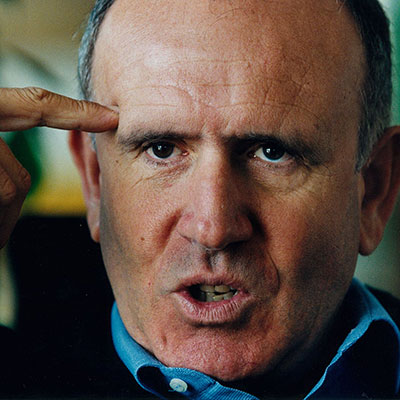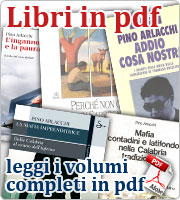Time.com
Jun. 15, 1998
By William Dowell
Pino Arlacchi is a man with an audacious mission: to stamp out all heroin and cocaine production worldwide in 10 years. Yeah, sure. But before you sell him short, take note of what he has already done since taking over the U.N. Drug Control Program last September.
Responding to reports that opium production in Afghanistan had shot up 25%, he flew to Kandahar and personally persuaded the country's radical Taliban rulers to halt future planting in exchange for help in reconstructing a factory that will provide jobs for impoverished residents. A few weeks ago, the Taliban publicly burned two tons of opium, enough to produce 400 lbs. of heroin, which is roughly the amount a European country would confiscate in a year. And you should know: in a previous job Arlacchi was the man who crippled the Mafia in Italy.
So people will be paying attention this week when he acts as host of the U.N. General Assembly's Special Session on the World Drug Problem. President Clinton and other world leaders will gather in New York City to sign on to Arlacchi's ambitious, two-pronged program to cut off drug production at its source while reducing demand for narcotics in developed countries. His next step will be to persuade these leaders to cough up the $5 billion that he says it will cost.
As a young sociology professor in the early 1980s, Arlacchi wrote a definitive book on how the Italian Mafia had transformed itself into a modern business. When the country's top Mafia fighter was gunned down in 1982, a badly shaken government asked Arlacchi to devise a plan to confiscate the organization's assets. After the Mob fought back with bombs that killed Italy's top two prosecutors, Arlacchi helped create a program to arrest hundreds of top Mafiosi and imprison them on a remote island off the coast. They failed in an attempt to kill him with a bomb planted in a tollbooth on the autostrada. These days when Arlacchi cruises in the Mediterranean on his 40-ft. sailboat, the Italian navy often sends a cutter as an escort.
The new drug boss's plan for cutting off production calls for tightening international controls over chemicals that go into making the finished product and better tracking of money-laundering operations. He wants to offer farmers a viable substitute for the lucrative poppies and coca that produce heroin and cocaine. Close to 90% of the opium used to make heroin comes from tightly confined areas in Afghanistan and Burma. "Not only can we spot all the growing areas by satellite," says Arlacchi, "we can also see the alternative areas growers could move to."
Similar substitutions have been tried in the past, but Arlacchi insists they were never systematically carried out. In Burma, Wa tribesmen stopped growing opium poppies altogether, but when an alternative-development program that had been promised was delayed two years, the tribesmen went back to poppies. Laos, which used to produce 3.5 tons of opium annually, recently switched to coffee, rice and chili farming under a U.N. pilot project. So far this year the Lao have cut opium production to a few hundred pounds. In Peru crop substitution has cut coca production 40%. "A million dollars," says Arlacchi, "can have 100 times the effect in Peru or Bolivia that it has by the time the drug reaches a consuming country."
Just as important, Arlacchi wants drug-consuming countries, including the U.S., to commit themselves to reducing demand for narcotics. To do that, he suggests, it will be necessary to break down some of the walls between drug-enforcement agencies and the proponents of rehabilitation; a combination of both approaches, he feels, is necessary.
The $5 billion cost of the program over the next 10 years, says Arlacchi, could come from funds that national governments are already budgeting for drug suppression. Development programs to reduce dependence on narcotic crops in Afghanistan and Burma would each cost $25 million a year. Given the horrible human-rights record of Afghanistan's Taliban and the ruling dictatorship in Burma, even that small amount is likely to stir opposition in Congress. Yet since narcotics addiction costs the U.S. an estimated $76 billion a year, it looks like an attractive investment.
Arlacchi says one of the most important messages he may have to deliver in New York is that since such countries as Iran and Pakistan now register about a million addicts each, narcotics are no longer exclusively an American problem. "Twenty years ago, the U.S. had to go it alone," he says. "Now it can rely more on international cooperation."
People are too hasty in dismissing the war against narcotics as a failure, argues Arlacchi. In the past few years, he points out, the Colombian cartels have been broken, drug warlords in Burma have surrendered, and Italy's Cosa Nostra has been sharply curtailed. The struggle has shifted to smaller, guerrilla-style confrontations. "Now," Arlacchi says, "you have hundreds of thousands of small groups that enjoy a high degree of invisibility and are able to convert themselves much more easily into new markets." That is precisely the type of fight that calls for the international coordination Arlacchi wants to provide.





 Non sono una persona complicata. La mia vita pubblica ruota intorno a due cose: il tentativo di capire ciò che mi circonda, da sociologo, e il tentativo di costruire un mondo più decente, da intellettuale e militante politico.
Non sono una persona complicata. La mia vita pubblica ruota intorno a due cose: il tentativo di capire ciò che mi circonda, da sociologo, e il tentativo di costruire un mondo più decente, da intellettuale e militante politico.




